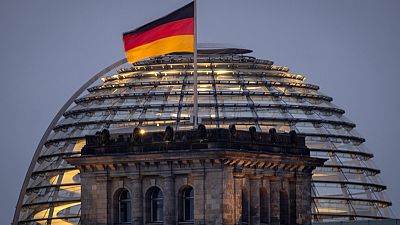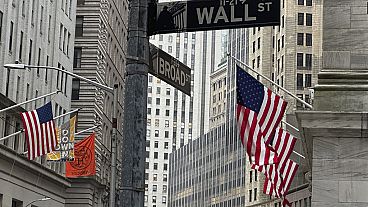Weakening global growth and the implications of Britain leaving the European Union are the two big talking points for G20 financial leaders meeting in Shanghai.
How to respond to weakening global growth and the political and economic implications if Britain were to leave the European Union are the two big talking points for financial leaders from the world’s 20 biggest economies who have been meeting in Shanghai.
Britain’s George Osborne has been lobbying for his counterparts to speak out against a Brexit. It was one of the topics when he spoke with China’s Vice Premier Ma Kai.
With risks facing global economy most heightened since crash, now would be worst time for UK to take gamble of EU exit
— George Osborne (@George_Osborne) 26 février 2016
It is unlikely that Osborne could get the participants to agree to any mention of the issue in the G20’s final communique.
The Chinese Foreign Ministry spokesman Hong Lei was very diplomatic, he told reporters: “We are always in support of the European integration process, (and are) willing to see the EU play a bigger role internationally. (We) also hope Britain and the EU can appropriately handle the relevant issue.”
The International Monetary Fund’s Christine Lagarde was more direct. She has already said Britain leaving the EU would be “negative on all fronts”.
She expanded on those comments in Shanghai: “Because there is uncertainty, as to what the terms would be under which the UK would be out of the European Union, it’s difficult to assess exactly the consequences of it. But most likely it will be less fluid, and not more fluid. We are bound to conclude without having yet done the study, and we will try to do as fair and thorough a study as we can, that it will be a negative if it was to succeed.”
But there will be no G20 backing for the IMF’s idea of coordinated stimulus to boost the global economy.
Germany’s Finance Minister Wolfgang Schaeuble and US Treasury Secretary Jack Lew have dismissed that idea.
#G20 needs to take bold action to rejuvenate global growth. Read IMF G20 note. https://t.co/MqmX8KcXiz
— IMF (@IMFNews) 24 February 2016
Opening the meeting, the Chinese Premier Li Keqiang said that major economies should be mindful of the spillover effects of their policies, improve their coordination and stand together to “tide over difficulties”.
But disagreement about what steps to take, make it unlikely that concrete action points will emerge.
“Talking about further stimulus just distracts from the real tasks at hand,” Schaeuble said.
Lew had a similar message, saying there was a great deal of economic uncertainty at present but no crisis.
“It would not be reasonable to expect a crisis response in an environment that is not a crisis,” he told reporters.



